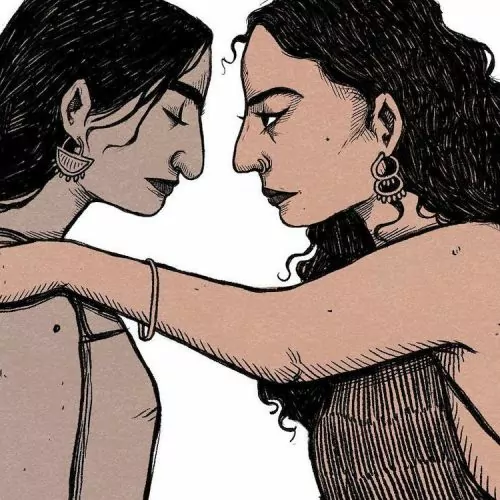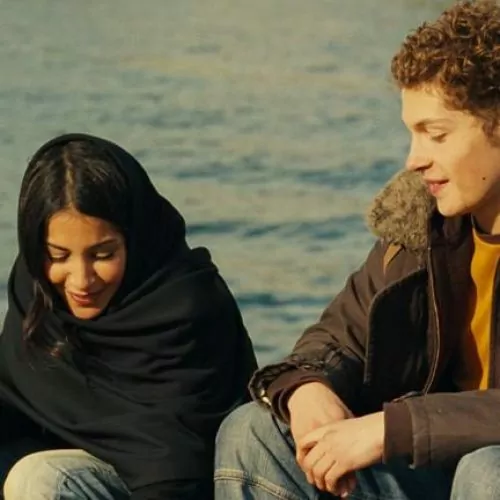It’s true that we Arabs are often discriminated against for the way we look. And it’s also true that the region’s colonial history has left its marks, and that we’ve still got work to do in terms of decolonizing our minds, and not least our beauty standards.
We live in a post-9/11 world where islamophobia is at an all-time high—and Arabs (Muslim and not) are affected by the widespread anti-Muslim rhetoric day in and day out. But our own hardships do not exempt us from being racist—and it’s time to admit it.
Non-black Tunisians often refer to themselves as hurr (free) in comparison to their formerly enslaved counterparts. And the words abid still rolls off their tongues with ease in reference to black people—as if it doesn’t literally mean slave.
And aside from language, Tunisia is still living through its very own Jim-Crow era, where students in the south are segregated by race, with black children riding separate buses from non-blacks.
In the gulf, modern-day slavery is in place. A quick google search will reveal the region’s barefaced racism, with dozens of published stories on the heinous treatment of black domestic workers—many of whom are often attacked by their employers and are being bought and sold—all under a legalized ‘kafala’ system that allows passports to be confiscated, binding migrant workers to their employers in similar ways African slaves were once tied to their American masters.
But perhaps the most blatant and undeniable display of racism came with the release of footage from a slave auction in Libya, where black migrants (most of whom were likely trying to make the journey to Libya in order to transit to Europe) were being sold off for $400 to work on farms.
And a quick look through our cinematic history will showcase our racism even further, with negative portrayals of black people having become customary, with black skin often the butt of jokes, and not least, a shameless use of blackface (a practice that dates back to the early 1830s in the United States made popular through minstrel shows)
The practice was designed specifically to perpetuate racist stereotypes, portraying black people as primitive, lazy, gangsters and thugs—and ultimately, preventing them from being viewed as complex human beings who are allotted the diversity in character as everyone else.
But while the minstrel shows were mostly exclusive to North America, racism is not. Despite the practice reaching an end in mainstream American media following the civil rights movement in the 1960s, racism has manifested itself the same way in Arab media today.
Just this past Ramadan, a Kuwaiti TV channel aired a series in which an episode was entirely dedicated to negative portrayals of Sudanese people, with Sudanese people played by non-black Arabs in blackface.
In similar fashion, one of the lead characters in the popular Egyptian series Azmi and Ashgan shamelessly donned blackface to play the role of a thief.
And if that wasn’t enough, in the eighth episode of the same show, a skit was devoted to a character’s complaints not about her husband’s infidelity, but rather his liking of black women. She goes on to use the n-word in reference to black women, to which supporting characters responded by offering prayers and solutions to her husband’s ‘problem’.
For avid viewers of Egyptian media, this should come as no surprise. Egyptian cinema in particular has a long history of racist portrayals of black people that displays itself through blackface. The Nubian community in Egypt has always been marginalized, and the discrimination against them is very often on full display in Egyptian media, where they’re often limited to roles as servants or criminals, and rarely—if ever—get the role of any kind of protagonist.
And as if playing subservient roles wasn’t enough, black people are constantly the direct targets of racist jokes. In the 1998 film, Seaedy Fel Gamaa El Amricia, a black prostitute is made fun of by the lead character, who venomously tells her “Why are you turning off the light? You’re already dark by nature”.
In another film, Ali Spicy, the lead character brashly announces “These are not women, they’re animals!” in reference to black women in the same scene.
Once you dig deep, it seems that examples of Arab racism are endless. Most troubling though, is our general silence towards the issue. Our lack of outrage is in itself a mark of our racism.
In a world where discrimination against us is so rampant, it’s hypocritical that we choose to inflict the same brutal suffering on others. It’s time, not only to admit that we are racist, but to scrutinize these attitudes and bring an end to the very real ramifications our racism has on others.









